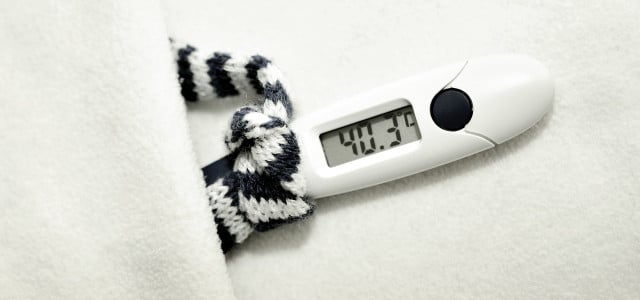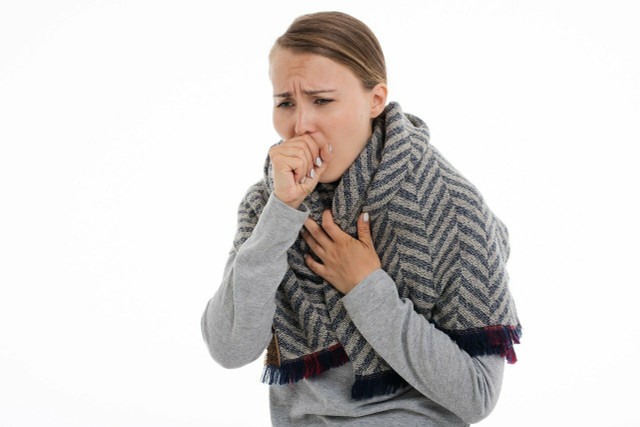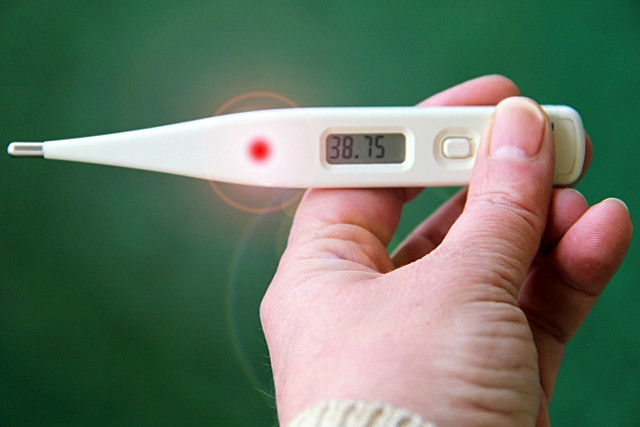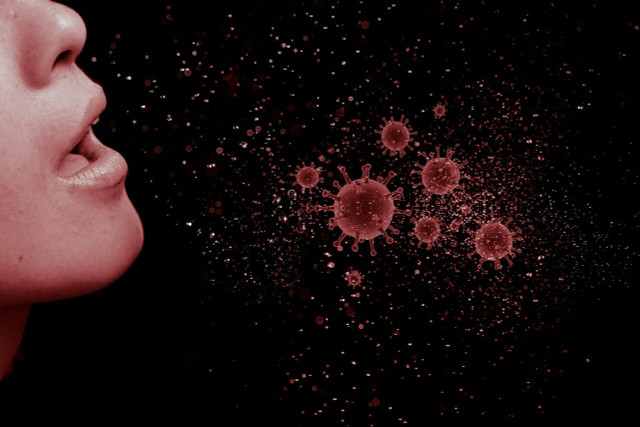
Identifying the coronavirus is often not easy because its symptoms are similar to other diseases. If you feel a scratchy throat, cough or sneeze, this could indicate Corona. Here you can find out what else you should pay attention to.
According to information on the website “Together against Corona” from the Federal Ministry of Health, the corona virus is a disease that primarily affects the respiratory tract. Therefore, the symptoms of the disease are similar to other respiratory diseases such as bronchitis, flu or colds. It is therefore important that you take such symptoms seriously and get tested – especially after contact with a person who has tested positive for Corona.
Attention: Many infected people have no or only mild symptoms. Experts therefore assume that there is a high number of unreported infections that are symptom-free. If you have had close contact with an infected person, we advise you to contact the health department. Even if you have no or only mild symptoms, you should stay at home.
Recognizing the coronavirus: what are the typical symptoms?

(Photo: CC0 / Pixabay / nastya_gepp)
According to the Robert Koch Institute (RKI), the incubation period for the coronavirus is up to 14 days from infection to the onset of the disease. The average is five to six days. The RKI classifies the clinical symptoms as “unspecific”. Some patients have “typical” symptoms such as fever or cough, while others have no such symptoms at all.
In general, most patients notice an infection with the coronavirus, as ÖkoTest reports based on RKI information, from the following symptoms:
- Cough occurs in around 42 percent of those affected.
- Around 31 percent of the patients suffer from a cold and around 26 percent from a fever.
- Almost a fifth (19 percent) also reported a changed or lost sense of smell or taste.
- According to the RKI, a good one percent of those infected with corona develop pneumonia (pneumonia), which in many cases requires hospitalization.
The coronavirus is more difficult to detect in children. Most of the time, the symptoms are mild and resemble a normal cold. As the Federal Center for Health Education explains, many children in one study even showed no symptoms at all.
An exception are infants and young children, who would become seriously ill more often. The so-called “Pediatric Inflammatory Multisystemic Syndrome” (PIMS-TSS for short) can also rarely be found in infected children. Sick children then suffer from severe inflammatory reactions that require intensive care treatment.
Recognizing atypical signs of the coronavirus
In addition to the typical symptoms, there are other signs that can be used to identify the coronavirus. Some of those affected complain about joint and muscle pain, tiredness, exhaustion or headaches.
Gastrointestinal complaints: Since the coronavirus can also settle in the gastrointestinal tract, some patients also suffer from corresponding complaints. As the Pharmazeutische Zeitung reports, such symptoms occur primarily in older people. So if you suffer from loss of appetite, diarrhea, abdominal pain, vomiting or nausea, a corona infection could be behind it.
The RKI also lists complaints of the gastrointestinal tract in the official statistics. Scientists at the University of Ulm confirm these findings: many (especially seriously ill) patients would develop symptoms such as diarrhea or nausea.
Cardiovascular symptoms: According to the RKI, some of those affected also experience cardiovascular symptoms. Cardiac arrhythmias, thrombosis, cardiac insufficiency or myocardial inflammation can occur, particularly in severe cases.
Skin diseases: Corona infected people rarely notice skin diseases. The medical journal reports that around 20 percent of the corona patients treated as inpatients have skin problems. Usually it is a rash, hives or small blisters. According to the experts, however, it is unclear whether these could be reactions to the medication.
Liver and kidney failure: As a result of an infection, your kidney or liver function can also be disturbed. Acute kidney failure occurs especially in seriously ill people and requires immediate medical treatment, according to the RKI.
Inflammation of the mucous membrane and mouth: In Spain, a study also examined the symptomatic course of a SARS-Cov-2 infection. The researchers found that around twelve percent of those infected had an inflamed tongue or inflamed mucous membranes. So if you have a “corona tongue”, this could also be an indication of an infection with the virus.
Distinguish Corona from other diseases

(Photo: CC0 / Pixabay / guvo59)
It is difficult to distinguish coronavirus from a cold or flu based on symptoms. The flu in particular sometimes causes similar symptoms. According to ÖkoTest, influenza generally occurs suddenly.
On the other hand, a cold or an infection with the corona virus can begin insidiously and slowly get worse. However, some sufferers report a sudden loss of smell and taste. It is therefore not possible to make any general statements on the differentiation, nor does the overview of the corona symptoms replace a visit to the doctor. So if you notice flu-like symptoms in yourself, only a test offers security to detect the corona virus.
Good to know: If you are unsure whether you are having an “allergic flare-up” or are seriously ill with Corona, the following applies: An allergy is more likely to bring with it signs such as sneezing, itchy eyes and a sore throat. In addition, you can usually treat hay fever and other allergies effectively with home remedies or medication. However, if no remedy works and you also have a fever, this is more likely to indicate a viral infection (e.g. with the corona virus).
Recognizing coronavirus: What symptoms do vaccinated people experience?

(Photo: CC0 / Pixabay / mohamed_hassan)
People who have been vaccinated should also recognize symptoms of the coronavirus, as they can still become infected. However, they usually fall ill more mildly and, as the RKI announces, have to go to the hospital less often. However, vaccinated individuals can also develop symptoms.
Scientists in London took a closer look at these cases as part of a study. The researchers were able to observe the following symptoms equally or even more intensely in vaccinated infected people:
- Sneezing was more common in the vaccinated group. However, it is unclear whether the frequent sneezing might not be exacerbated by existing allergies.
- In addition to the symptoms mentioned, vaccinated people can also have headaches, coughing or a runny nose when infected. Especially when coughing, it is usually more of a dry, irritating cough without phlegm, which has a barking, hoarse sound.
Recognizing coronavirus: how long do the symptoms last?
If you only have mild symptoms, they will probably subside after a week or two. However, you are already contagious to others before the first signs of illness appear. Therefore, if you suspect that you have had contact with an infected person, you should definitely stay at home, limit your direct contacts and comply with the hygiene rules. Here you can find out what to do after a positive self-test.
Read more on Techzle.com:
- Dispose of corona test: In which bin does the rapid test belong?
- Infection Protection Act: Current Corona rules and what you should consider
- Corona virus: This helps against fear